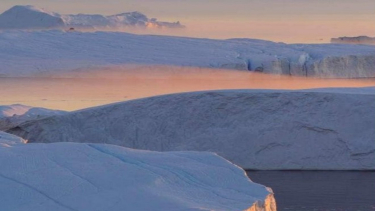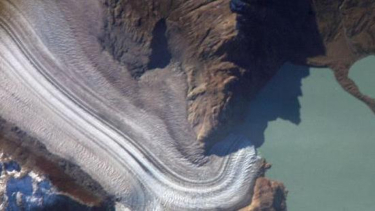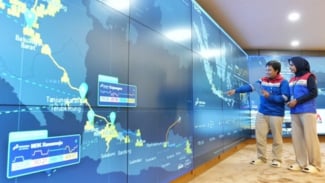Half of the Glaciers to Disappear by 2100, Scientists Find
- U-Report
VIVA – Half of all glaciers in this world will have melted by 2100 even though humans are trying to decrease the earth's temperature based on the Paris climate agreement.
Scientists found 49% of glaciers would disappear under the most optimistic scenario of 1.5 celsius of warming. However, if global heating continued under the current scenario of 2.7C of warming, losses would be more significant, with 68% of glaciers disappearing, according to the paper, published in Science.
There would be almost no glaciers left in central Europe, western Canada, and the United States by the end of the next century if this happened.
Melting ice and the loss of glaciers will significantly contribute to sea level rise. It also threatens water supplies and increases the risk of natural disasters such as floods. The study looked at all glacial ice fields except the Greenland and Antarctic ice sheets.
Gletser.
- dailymail.co.uk
If the temperature increase is limited to 1.5 degrees Celsius, average sea levels would rise by 90mm from 2015 to 2100. But with 2.7 degrees Celsius of warming, glacial melting will cause a sea level rise of about 115 mm.
The melting of iceberg glaciers is believed to contribute to more than a third of the sea level rise. Many of these losses are unavoidable, but the magnitude of the losses is directly linked to rising temperatures. So addressing the climate crisis is key.
"The rapidly increasing glacier mass loss as global temperatures rise beyond 1.5 degrees Celsius emphasizes the urgency of setting more ambitious climate-keeping pledges to preserve glaciers in these mountainous regions," the researchers wrote.
The study's lead author, Dr. David Rounce of Carnegie Mellon University and the University of Alaska Fairbanks said it was the first time they had isolated the number of glaciers that would be lost.
"Most of the glaciers that will be lost are small, currently less than 1 square kilometer. Although they contribute less to the total volume, they are most vulnerable to change. This is why the total mass loss is less. So, for example, under the 2.7 degrees Celsius scenario, 68% of glaciers will be lost but the relative mass is less – projected to be 32%," he explained.
Lower mountain ranges such as the Alps and the Pyrenees are among the worst affected.
In the Alps, for example, by 2050, glaciers are expected to be on average 70% smaller, and many smaller glaciers will disappear, with snow peaks replaced by bare rocks in some locations, and with a significant loss of biodiversity.
This is not the first study to project sea level rise from glacial melt, but the projections are more accurate than previous models. The current study follows research from 2021 that found that glacier melt rates have doubled in the past two decades, contributing more to sea level rise than Greenland or Antarctic ice sheets.



























